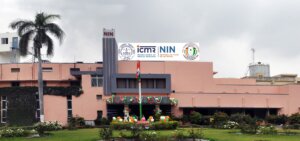The Indian Council of Medical Research-National Institute of Nutrition (ICMR-NIN), which is the leading nutrition authority in India, has recently changed its dietary Guidelines.
As per the updated guidelines, it is now advised to avoid giving sugar to children below the age of two.
After a 13-year break, the recently published guidelines suggest that individuals above two should restrict their sugar consumption to only 5 percent of their daily caloric intake.
In line with the World Health Organization’s (WHO) 2015 guidelines on sugar intake, these recommendations underscore a significant difference from India’s existing food policies on sugar levels in food items.
Nestle, the global food combination, has recently come under fire for including sugar in its powdered baby food products, like Cerelac, in lower-income countries such as India while excluding it in richer nations. As a result, the Food Safety and Standards Authority of India (FSSAI) is now reviewing its regulations regarding sugar in packaged foods.
A recent collaboration between Public Eye and the International Baby Food Action Network (IBFAN) revealed that in India, sales of Cerelac exceeded $250 million in 2022. The investigation found that all Cerelac baby cereals in the 6-24 months age group contain an average of nearly 3 grams of added sugar per serving.
Nestle India has stated that it has decreased added sugars by as much as 30 percent in its infant cereals portfolio.
The company reassured that they consistently evaluate their products and make improvements to reduce added sugars while maintaining quality, safety, and taste.
The regulation states that lactose and glucose polymers are the preferred carbohydrates for infant nutrition. Sucrose and/or fructose should only be added if necessary as a carbohydrate source, and the total sum of these should not exceed 20 percent of the total carbohydrate content.

Dr Arun Gupta, the national convenor of the nutrition think-tank Nutrition Advocacy in the Public Interest (NAPi), highlighted the presence of an evident gap in India’s current regulations that companies take advantage of.
He highlighted that the WHO provides detailed recommendations for a nutritious diet for babies and young children, stating that starting at 6 months old, breast milk should be supplemented with a diverse selection of nutritious and safe foods. It is important to avoid adding salt and sugar to these complementary foods.
Gupta also emphasized that infants should not be allowed to consume any packaged food containing added sugar.
Additionally, he suggested that products intended for older children and adults should have prominent Front-of-the Packet Label (FoPL) warnings indicating if they are high in fat, sugar, and salt (HFSS), especially given India’s growing non-communicable disease crisis.
However, India’s 2020 Food Safety and Standards (Foods for Infant Nutrition) Regulations allow for the inclusion of sucrose and/or fructose in quantities of up to 20 percent of total carbohydrates or 13.6 grams of sugar per 100 grams of serving.
Date : 18 May 2023 Time : 10 AM to 05 PM Faculty : Asmita Thaokar (FSSAI National Level Resource Person)
To get regular updates on the Food Industry, join our WhatsApp group: Joining link
Share this NEWS with all your Friends and Family Members.